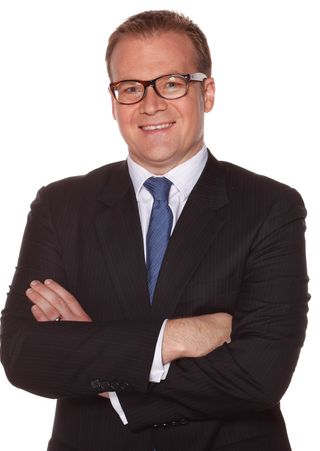The Drum (ABC online)
By John Barron
The shooting of a group of people including Democrat Congresswoman Gabrielle Giffords outside a supermarket in suburban Tucson, Arizona this week has proven to be a political Rorshach test.
To some it is the inevitable product of vitriolic talk radio and inflammatory political rhetoric engaged in the Tea Party Movement, Sarah Palin, Glenn Beck and Right-wing talk radio. To advocates of gun control it is yet more proof that the laws need tightening, particularly making sure people with a history of mental health problems can't walk in off the street and buy a 9mm Glock semi-automatic pistol. Yet just as many say free speech cannot be curtailed in the face of a few populist or sensationalist voices, and supporters of the US Constitution's Second Amendment right to bear arms might well contend that had more people outside that Safeway had guns to defend themselves and others, all those people would not have died.
It's also worth noting, last year when Congresswoman Giffords was asked how she felt about threats made against her during the heated debate over healthcare, she said, "I have a Glock 9mm, and I'm a pretty good shot". The same make and model weapon fired into the back of her skull by a deranged gunman. We may never know if her feelings on gun control have now changed.
One thing we can be fairly certain of though, is that the cordon of security that surrounds some high profile politicians in the United States will be extended. "Congress on your Corner" events like that held by Gabby Giffords at 10am last Saturday morning on the corner of Ina and Oracle Roads in Tucson, will be a thing of the past.
The day after the shooting I spoke to a friend of Congresswoman Giffords, Representative Daniel Peterson, whose state district in Tucson overlaps Gifford's federal one. As Giffords lay in an induced coma, having already beaten the 20:1 odds of surviving her initial catastrophic wound, Peterson said his greatest fear was that this attack could mark the end of politicians and constituents coming into close contact.
Retail Politics (as they call it in America without even a hint of irony) is still the way many voters first encounter their would-be leaders. It is as true for someone running for the local school board or Sherriff's office as it is for future presidents of the United States, although there are already limits brought by past tragedies. Ever since Bobby Kennedy was shot campaigning for the Democratic presidential nomination in 1968, the "top tier" candidates receive Secret Service protection - the four or five other contenders only get a few G-men if their poll numbers go up. So while Hillary Clinton, as a former first Lady and "top tier" candidate had Secret Service protection in 2007 and 2008, other Presidential candidates like then-Senator Joe Biden and Arkansas Governor Mike Huckabee did not.
When Barack Obama announced he was running for the White House in early 2007 he had to employ his own security guards until the FBI received a credible threat and then the guys in dark suits with wires in their ears showed up.
For voters in states like Iowa, New Hampshire and South Carolina, who expect to see presidential candidates several times and hear them speak at state fairs and small neighbourhood gatherings, higher security drives a wedge between politician and public. The Secret Service also gets in the way between the candidate and the media as well. As a journalist on the campaign trail you could just walk up to Biden or Huckabee and ask for an interview - but there was no getting anywhere near to Hillary or Barack.
After the Giffords shooting, it's a safe bet that all the Republicans seeking the White House this year will have heightened protection, and President Obama's security detail will be better planned than D-Day.
Sadly, for democracy, this will make it harder for all candidates to get in tune with the concerns of the voters. It could also mean candidates with less money to buy TV advertising will find it harder to get exposed to the public or attract the interest of the press. Whatever else is perceived in the ink blots, the true Giffords Effect could be that in future only the political contender with the deepest pockets will win.
John Barron presents The Morning Program on ABC NewsRadio. John is also a Research Associate at the United States Studies Centre at the University of Sydney, and author of the book "Vote for Me!" about the 2008 presidential campaign. He will be filming his second feature documentary in the US during the 2012 campaign.





